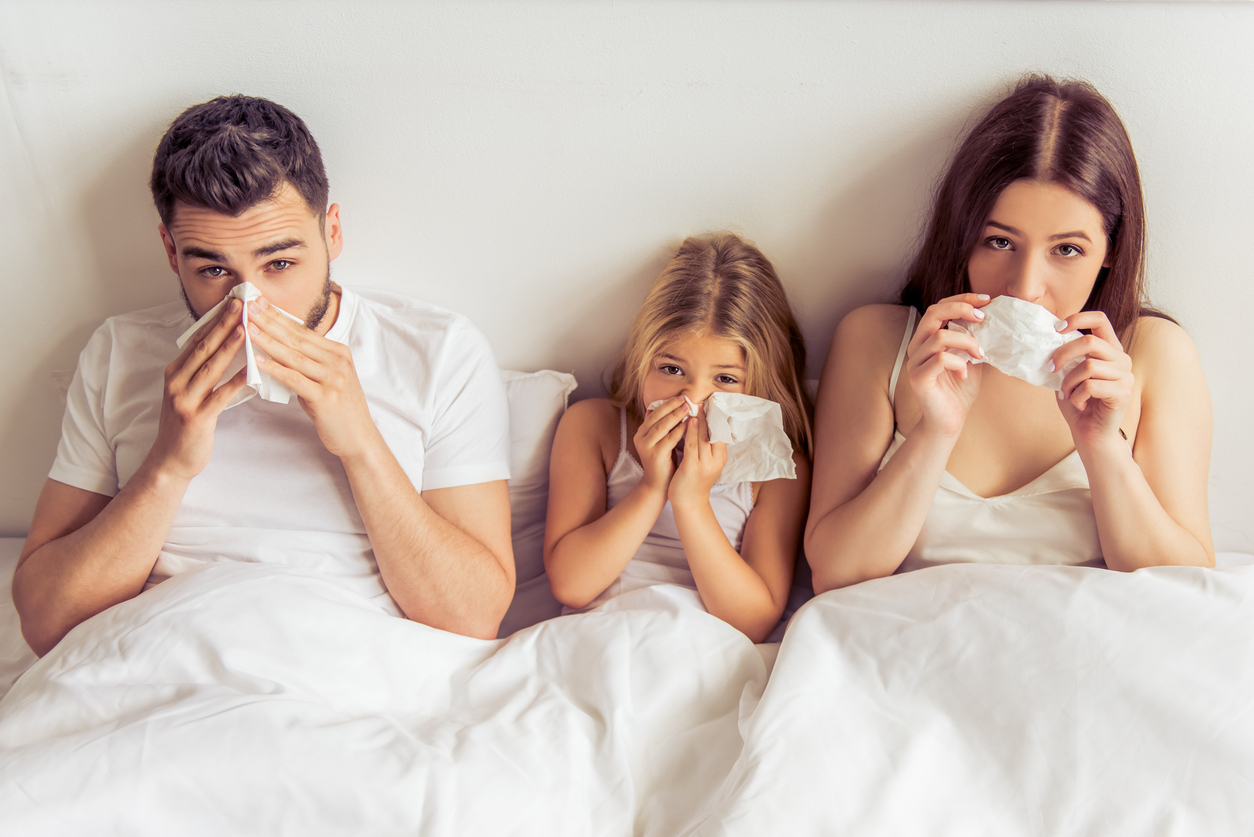Living with Eczema in Texas
Texas offers plenty of benefits, from its thriving cities to its stunning natural landscapes. But to individuals with eczema, the subtropical climate of the Lone Star State is a double-edged sword. Eczema, a chronic skin condition involving inflammation, dryness, and itching, can flare up depending on many environmental conditions.
At Southwest Allergy & Asthma Center, we understand how challenging it is for eczema sufferers in Texas. With the humid, hot summers or dry, cold winters, it is essential to understand how the weather affects your skin. Then you can take steps to minimize flare-ups.
Eczema and Its Triggers
Eczema, or atopic dermatitis, is often influenced by genetics, allergens, environmental factors, and stress. While some people experience mild symptoms, others struggle with severe itching, redness, and cracked skin. Common eczema triggers include:
- Dry air that strips moisture from the skin
- Heat and sweating, which can cause irritation
- Pollen, dust mites, and pet dander, common allergens
- Harsh skincare products that contain fragrances or dyes
Because the climate plays a major role in eczema symptoms, choosing the right place to live and understanding how to manage symptoms based on your environment is crucial.
Best and Worst Climates for People with Eczema
Best Climates
Certain climates are more eczema-friendly because they offer consistent humidity and mild temperatures, reducing dryness and excessive sweating.
- Coastal Regions with Mild Humidity: Locations near the ocean have a moderate climate with consistent moisture in the air, helping skin retain hydration.
- Mild or Temperate Climates: Areas that have year-round moderate temperatures, preventing extreme dryness or excessive sweating.
- Southern Europe & Mediterranean Climates: Places that offer warm but not excessively dry conditions can benefit eczema sufferers.
Worst Climates
Some environments are harsher on sensitive skin due to extreme dryness, excessive humidity, or temperature fluctuations.
- Dry & Cold Regions: Places that have low humidity and cold winters, which can dehydrate the skin and cause cracks.
- Hot & Humid Areas: Southern states like Florida and Louisiana may seem ideal due to humidity, but excessive sweating and high mold levels can worsen symptoms.
- Desert Climates: Places with very low humidity lead to chronic skin dryness and irritation.
Since Texas has hot & humid summers and cold & dry winters, managing eczema effectively requires seasonal skincare adjustments.
Eczema Management Tips for Texas Residents
-
Moisturize Regularly
Keeping skin hydrated is the most important step in eczema care.
- Use a thick, fragrance-free moisturizer at least twice daily.
- Apply moisturizer immediately after a bath or shower while the skin is damp.
- Choose ointment-based moisturizers like petroleum jelly in colder months.
-
Control Indoor Air Quality
Texas weather varies drastically, making indoor climate control essential.
- Use a humidifier during winter to maintain indoor moisture levels.
- In summer, stay cool with air conditioning to reduce sweating.
- Avoid sudden temperature changes by layering clothing in winter.
-
Choose Skin-Friendly Clothing
Your clothing can make or break your eczema management routine.
- Opt for breathable fabrics like cotton or bamboo.
- Avoid synthetic materials and wool, which can irritate sensitive skin.
- Wash new clothes before wearing to remove potential irritants.
-
Use Gentle, Hypoallergenic Skincare
Many commercial skincare products contain harsh chemicals that worsen eczema.
- Choose fragrance-free, hypoallergenic soaps and lotions.
- Use lukewarm water instead of hot water when showering.
- Pat skin dry instead of rubbing with a towel.
-
Watch Out for Allergens
Since allergens can trigger flare-ups, keeping your home clean is key.
- Vacuum weekly to reduce dust mites.
- Use allergy-proof mattress and pillow covers.
- Keep pets out of bedrooms if pet dander is a trigger.
-
Manage Stress
Stress is a major eczema trigger that many people overlook.
- Practice meditation, yoga, or deep breathing exercises.
- Engage in hobbies that relax you, such as reading or gardening.
- Get enough sleep to allow skin repair overnight.
At-Home Remedies for Eczema Relief
If you’re dealing with a flare-up, here are some natural ways to soothe your skin:
- Oatmeal Baths: Colloidal oatmeal has anti-inflammatory properties that reduce itching
- Coconut Oil: A natural moisturizer that strengthens the skin barrier
- Aloe Vera Gel: Helps cool inflamed skin and speed up healing
- Apple Cider Vinegar: A diluted apple cider vinegar rinse can help balance skin pH
- Wet Wrap Therapy: Applying damp bandages over moisturizer can lock in hydration
When to See a Specialist
If your eczema symptoms are severe, persistent, or affecting your quality of life, it may be time to seek professional care. If you have severe itching, infections, and no improvement despite using these treatments, you may need to seek a medical professional. At Southwest Allergy & Asthma Center, our specialists provide personalized eczema treatment plans to help you manage your skin condition effectively.
Book a Consultation Today!
Eczema can be challenging, but with the right skincare routine and professional guidance, you can keep your skin healthy year-round. Our experienced dermatologists and allergists are here to help.





